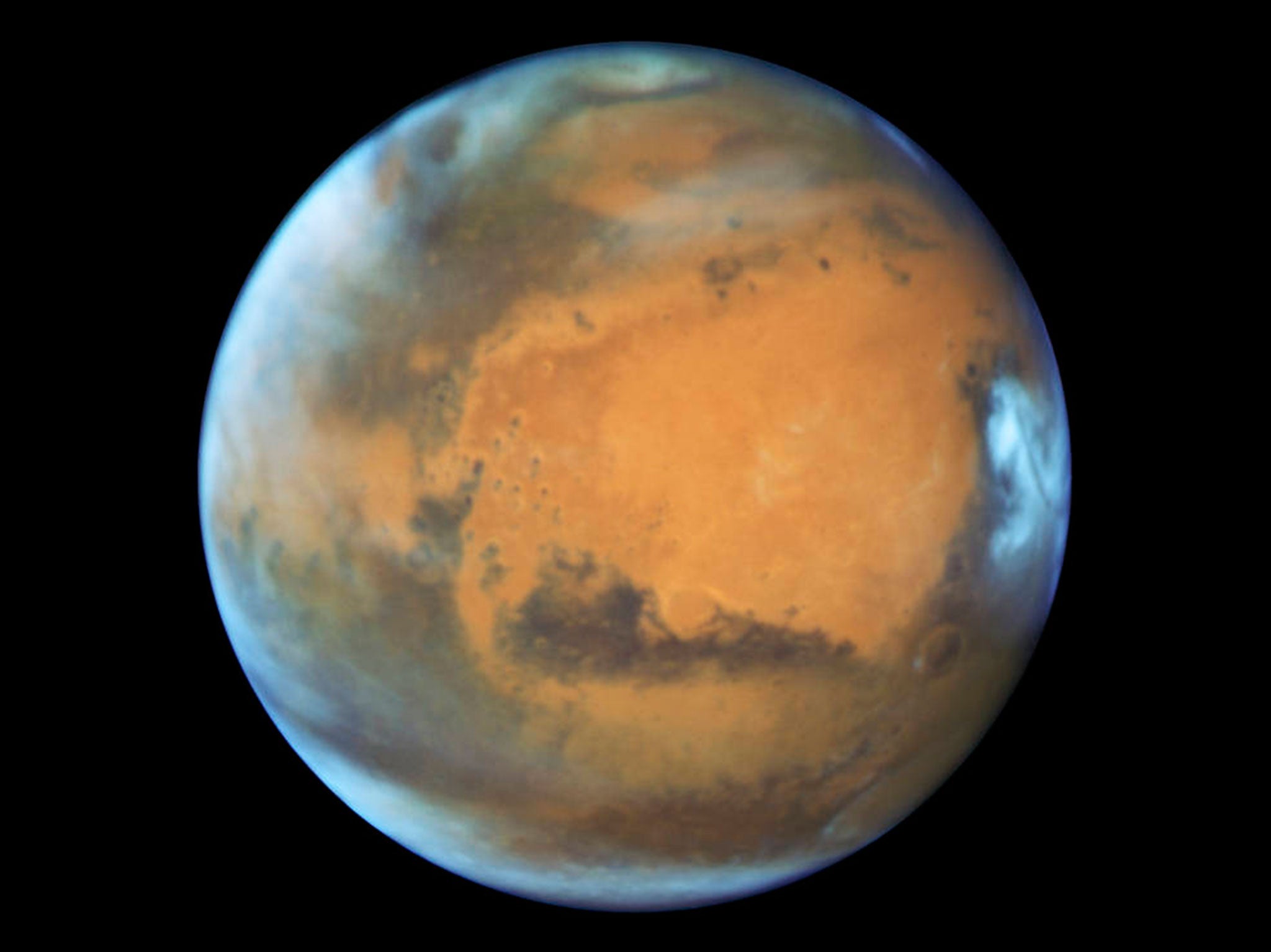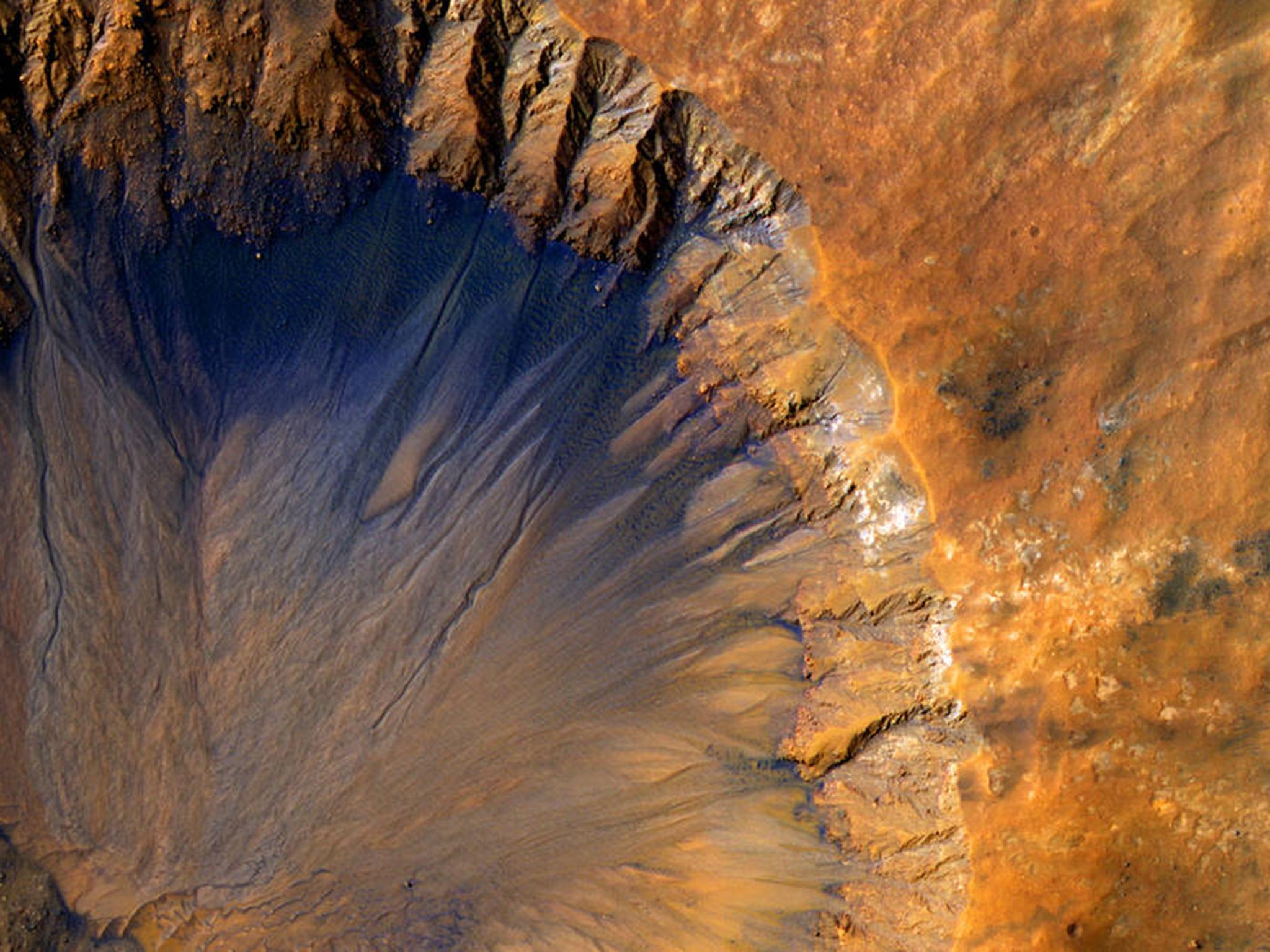Mars emerging from ice age that ended around 370,000 years ago, scientists say
Researchers used a ground-penetrating radar instrument on the Mars Reconnaissance Orbiter spacecraft to investigate changes to the Martian north pole icecap

Mars is in the process of emerging from an ice age that ended less than 400,000 years ago, scientists believe.
Satellite observations show evidence of the latest in a series of climate change swings caused by the planet tilting on its axis.
Researchers used a ground-penetrating radar instrument on the Mars Reconnaissance Orbiter spacecraft to investigate changes to the Martian north pole icecap.

Features below the surface revealed accumulation and flow patterns suggesting a retreat of ice to the north pole that began about 370,000 years ago.
Ice ages on Mars are driven by the same influences that cause them on Earth - long-term changes in the planet's orbit and tilt which affect the amount of sunlight falling on different parts of its surface.
Mars may experience more pronounced climate change cycles because its tilt alters by as much as 60 degrees on time scales of hundreds of thousands to millions of years.
In contrast the Earth's tilt varies by only about two degrees over the same amounts of time.
Dr Isaac Smith, from Southwest Research Institute in Boulder, US, who led the study published in the journal Science, said: “Because the climate on Mars fluctuates with larger swings in axial tilt, and ice will distribute differently for each swing, Mars would look substantially different in the past than it does now.
“Furthermore, because Mars has no oceans at present, it represents a simplified 'laboratory' for understanding climate science on Earth.”
Learning about ice on Mars was also important to the future of human exploration of the Red Planet, he said.
“Water will be a critical resource for a Martian outpost,” Dr Smith added.
PA
Join our commenting forum
Join thought-provoking conversations, follow other Independent readers and see their replies
Comments
Bookmark popover
Removed from bookmarks